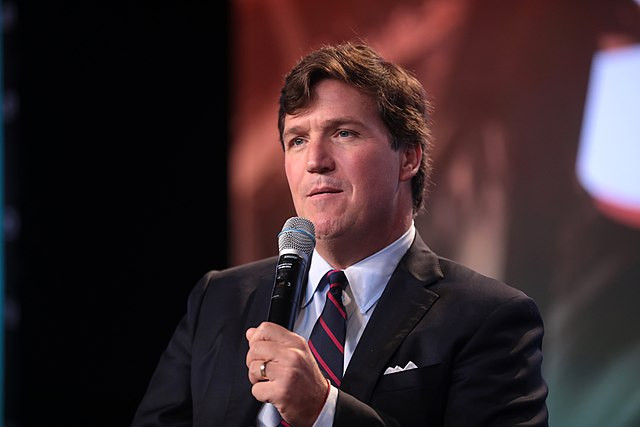Tucker Carlson, the controversial former Fox News host, has conducted an interview with Russian President Vladimir Putin, igniting a firestorm of criticism from both Western and Russian journalists. Carlson, known for his contentious viewpoints, particularly his skepticism towards support for Ukraine, traveled to Moscow for the interview, claiming it was his journalistic duty to present Putin's perspective.
The interview, confirmed by the Kremlin and announced by Carlson with a video that quickly went viral, has become a focal point of debate over journalistic integrity and the role of media in geopolitical conflicts.
In his announcement, Carlson criticized Western media for not making efforts to hear Putin's side of the story, a stance that has drawn sharp rebukes from journalists around the globe. Notable figures such as Anne Applebaum and Christiane Amanpour have countered Carlson's claim, pointing out the numerous attempts by Western journalists to secure an interview with Putin, especially since the onset of the Ukraine conflict.
pic.twitter.com/OAky3fBywu — Elon Musk (@elonmusk) February 6, 2024
The Kremlin, through its spokesperson Dmitry Peskov, stated that Carlson was chosen for his unique, purportedly pro-American stance, which starkly contrasts with what Moscow perceives as the biased positions of traditional Western media.
The reaction to Carlson's endeavor has been particularly strong among Russian journalists, many of whom have been forced into exile or faced repression due to their coverage of the Kremlin's actions in Ukraine. The interview is seen by some as a slap in the face to those who have risked their lives to report on the war, with Russian journalist Yevgenia Albats expressing outrage over Carlson's portrayal of journalism from the comfort of a luxury hotel in Moscow.
The backdrop to Carlson's interview is the increasingly hostile environment for journalism in Russia, where the government has enacted laws that effectively criminalize independent reporting on the war in Ukraine.
The plight of journalists like Evan Gershkovich of The Wall Street Journal and Alsu Kurmasheva of Radio Free Europe/Radio Liberty, both imprisoned on charges they and their employers deny, underscores the dangers faced by those seeking to provide objective coverage of the conflict.
Carlson's interview with Putin, which is set to be released in full and unedited on his personal website and social media, marks a rare engagement by the Russian president with Western media since the invasion of Ukraine. While Carlson positions the interview as an exercise in free speech and journalistic duty, critics argue that it serves more as a propaganda tool for Putin, allowing him to disseminate his narrative unchallenged.
As the interview's release approaches, the global journalistic community remains divided over Carlson's actions, with many condemning his approach as propaganda masquerading as journalism. The episode highlights the complex dynamics of media in international conflicts, where the line between informing the public and serving political agendas can become perilously thin.






